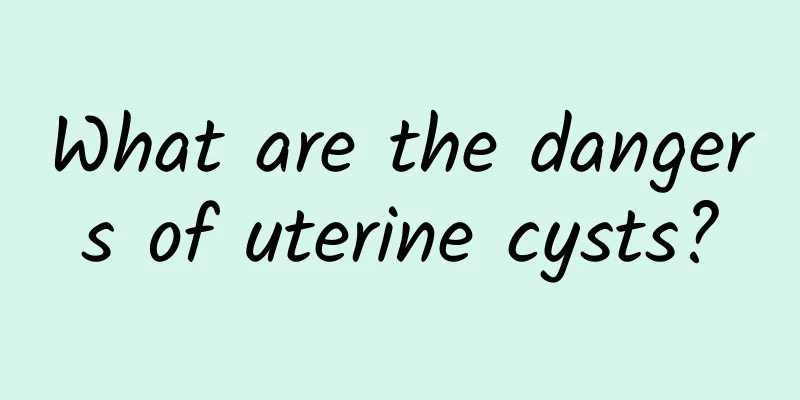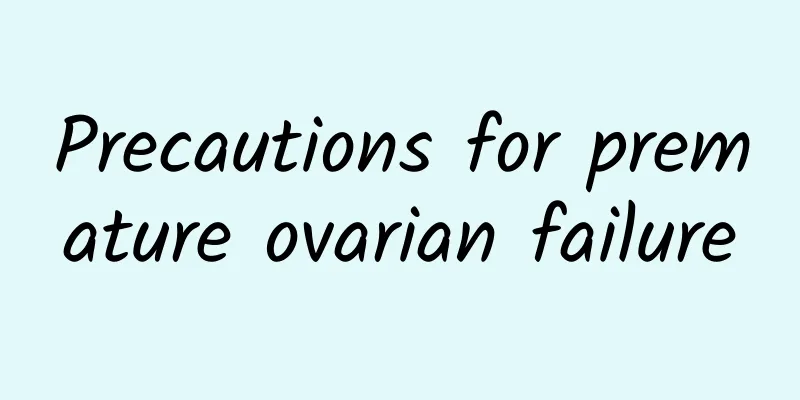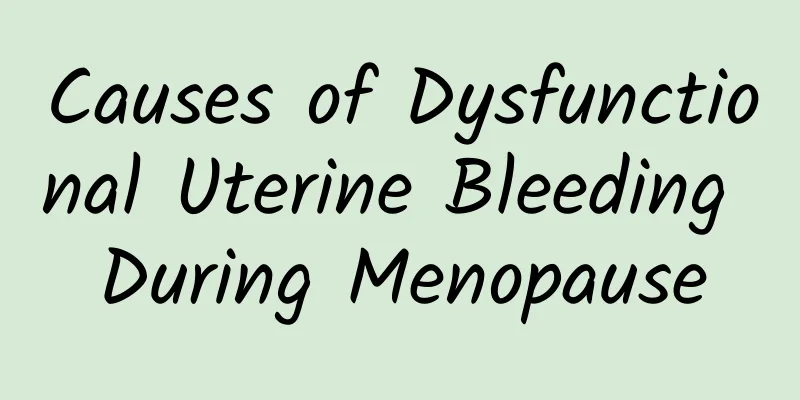What are the dangers of uterine cysts?

|
Uterine cysts may have a variety of effects on women's health, and it is necessary to pay attention to their potential harm. Uterine cysts may cause irregular menstruation, dysmenorrhea or abnormal bleeding, which may affect women's daily life and psychological state. Larger cysts may compress surrounding organs and cause urination difficulties or constipation. In some cases, especially when the cyst ruptures or becomes infected, it may cause acute abdominal pain or pelvic inflammation, which requires immediate medical attention. It is also important to note that although most uterine cysts are benign, some may become malignant or lead to the development of other pathological conditions, so regular medical examinations are key. From the perspective of etiology, uterine cysts may be related to genetic factors, endocrine disorders, chronic infections, and endometriosis. Environmental factors such as eating habits and environmental pollution may also affect the formation of cysts. For small, asymptomatic cysts, doctors may recommend regular observation, but if the cysts are large or cause symptoms, medication or surgical intervention may be required. Medication includes hormone therapy, such as the use of oral contraceptives, ovulation-inducing drugs, and anti-inflammatory drugs to relieve symptoms and inhibit cyst growth; surgical options may include laparoscopic surgery, open surgery, or cyst removal, depending on the nature of the cyst and the patient's health. From the perspective of etiology, uterine cysts may be related to genetic factors, endocrine disorders, chronic infections, and endometriosis. Environmental factors such as eating habits and environmental pollution may also affect the formation of cysts. For small, asymptomatic cysts, doctors may recommend regular observation, but if the cysts are large or cause symptoms, medication or surgical intervention may be required. Medication includes hormone therapy, such as the use of oral contraceptives, ovulation-inducing drugs, and anti-inflammatory drugs to relieve symptoms and inhibit cyst growth; surgical options may include laparoscopic surgery, open surgery, or cyst removal, depending on the nature of the cyst and the patient's health. In daily life, women can prevent and monitor uterine cysts through regular gynecological examinations, a proper diet and a healthy lifestyle. Reducing fat intake and increasing fiber and vitamin intake can help regulate hormone levels in the body. At the same time, regular exercise can improve the body's immunity and help resist the risk of chronic diseases. If persistent abnormal symptoms occur, you should seek medical attention in time and receive professional evaluation and treatment advice. Keeping an open mind and maintaining good communication with your doctor are important steps in dealing with problems related to uterine cysts. |
<<: What are the causes of uterine cysts?
>>: How to relieve the pain of my girlfriend's menstrual cramps without medication
Recommend
[Video version] Do coriander and carrots have a strange smell? Turn 6 kinds of "disgusting foods" into happy and delicious foods
"Boss, I want a bowl of rice noodles without...
Being too thin can lead to fractures and premature aging! How to delay the onset age of osteoporosis? Do this during your peak bone mass period!
Busy young woman not paying attention to diet Chi...
What is the best way to remove uterine fibroids? How to remove uterine fibroids
What is the best way to remove uterine fibroids? ...
Things to note when enhancing ovarian function
Women's ovaries are areas that require specia...
What are the 4 manifestations of uterine fibroids?
What are the 4 symptoms of uterine fibroids? Uter...
What causes candidal vaginitis? What should I do?
What causes candidal vaginitis? What should I do?...
Things to note about uterine effusion
Uterine effusion is a manifestation rather than a...
What causes right ovarian cyst? Is it related to diet?
Generally, ovarian cysts, even bilateral ovarian ...
Experts explain the nursing methods for acute adnexitis
According to gynecological experts, adnexitis car...
What is the best medicine for cervical erosion?
What is the best medicine for cervical erosion? 1...
Drink lotus leaf oolong tea for hyperlipidemia
Older people are most afraid of the three high pr...
What are the main treatments for vulvar leukoplakia?
What are the main treatments for vulvar leukoplak...
Can uterine cysts be eliminated by taking medicine? Will they recur?
Uterine cysts can be eliminated with medication i...
Is it better to have an abortion or a medical abortion? The choice of abortion or medical abortion mainly depends on these three points
Nowadays, many men and women are eager to have se...
Introduction: Three main symptoms of cervical hypertrophy
Clinically, the symptoms of cervical hypertrophy ...









